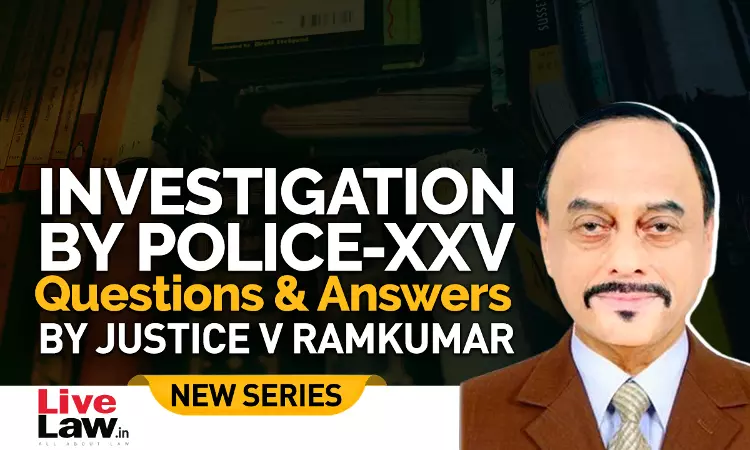Questions & Answers By Justice V. Ramkumar- Investigation By Police- PART XXV
Justice V. Ramkumar
28 Jan 2023 2:30 PM IST

Next Story
28 Jan 2023 2:30 PM IST
Q.121 When does trial start in a “warrant case” and a “sessions case”?Ans.· The following are the provisions in the Cr.P.C. pertaining to the framing of charge in warrant and sessions trial:-Warrant - Sec. 240 (police charge case)- Sec. 246 (complaint case)Sessions - Sec. 228· In paragraph 28 of Ratilal Bhanji Mithani v. State of Maharashtra – (1979) 2 SCC 179 = AIR 1979 SC...
